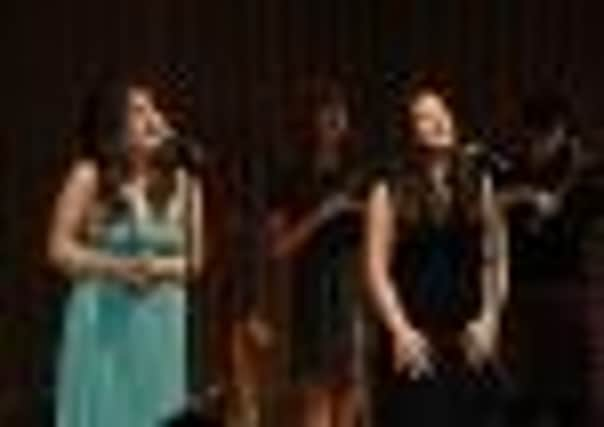How folk struck a chord with new generation


Once upon a time, there was folk music and everyone knew where they were with it. It was played, on instruments made of wood, by bearded men in woolly sweaters to other bearded men in woolly sweaters. Real ale might have been involved. Fashionable it definitely wasn’t.
In the 1980s and 90s, folk music was decidedly in the margins. Stalwarts such as Martin Carthy and The Watersons ploughed a lonely traditional furrow to niche audiences. But changes were afoot. In 2000, the BBC launched the Radio Two Folk Awards. By the mid-2000s, there were almost more flavours of fashionable folk – nu-folk, alt-folk, neo-folk – than ice cream flavours at Baskin-Robbins.
Advertisement
Hide AdAdvertisement
Hide AdWanting to evoke the spirit of 1960s hippie Albion? Vashti Bunyan, on the comeback trail. Wacked-out psychedelic folk? Devendra Banhart’s your man. Lusty seafaring folk? That’ll be Seth Lakeman. A feisty take on traditional folk? The punky daughter of folk royalty, Eliza Carthy. Even, for those who fancied prancing minstrels clad in the garb of Merrie England, what about medieval caperers Circulus? As for Bellowhead, their storming live shows proved that folk music in the 21st century was kicking up an exciting storm. And with Laura Marling’s recent Brit award, the nu/alt/neo folk scene has achieved mainstream credibility.
Arguably, the last time folk was this exciting was when Fairport Convention released Liege and Leif in 1969, fusing traditional English folk with electric instruments to form folk-rock – but this time a new generation of folkies has grown up with folk rather than discovering it. They have also grown up with rock, electronica, world music and developments in new technology; the timeless, traditional music they have chosen to focus their energies on goes hand in hand with a contemporary outlook.
This has lent a passionate, vital edge to the work of such musicians as Lau, The Unthanks, and Spiers and Boden – all of whom are appearing at Leeds’s finest showcase for cutting-edge music, Howard Assembly Rooms, starting with Lau tonight. But what accounts for the increasing appeal of this latest folk revival? “It’s maybe that, as a society, we are becoming tired of the way in which globalisation is making culture homogenized,’ says Rachel Unthank. “Perhaps people are yearning for music with some sense of place and roots.”
The Northumbrian act, where she sings in close harmony with her sister Becky, have been rightly lauded for their graceful, austere and gorgeous renditions of traditional song.
Advertisement
Hide AdAdvertisement
Hide Ad“Perhaps they want something more hand-crafted and genuine. With folk, there’s a lot of authenticity. Young people are starting to knit again – they’re sick of being sold this homogenized culture. They want something more local, more organic.”
Rachel and Becky’s haunting vocals have a timeless, otherworldly quality and The Unthanks’ uncompromising creativity – they weave stunning atmospherics around their narrative songs – have placed them with one foot firmly in the avant-garde camp. Yet, in her red lipstick and pretty vintage dresses, her retro chic image locates her in the 21st century, and The Unthanks have gone way outside the traditional folk canon by covering songs by Robert Wyatt and Antony Hegarty of Anthony and the Johnsons. Rachel and Becky grew up surrounded by folk music – both parents are singers and their father George is a member of Tyneside group The Keelers.
“We’d go to folk gigs, folk festivals, singalongs. For us, it was a way of life. But,” she adds, “we weren’t brought up in a folk bubble.”
So what was it that drew her to traditional music? “Those songs have such depths of life,” she says. “Obviously, most of them are traditional stories – but I do think we relate them to our own lives, and experience.
Advertisement
Hide AdAdvertisement
Hide Ad“Folk music has many forms – we’ll sing in a pub, we’ll sing in an arts centre, we’ll sing in a sticky indie gig in the centre of a town. Folk music has many functions – it is still played for dancing to. It can survive in a lot of environments. There’s nobody in Northumberland who works down the mines anymore – so their stories have taken on different forms and different functions.” The songs’ contemporary relevance, she believes, comes from the fact that: “they’re about the human condition – life, love and loss, and these are things that people experience. What’s at the core of the songs is still very much alive.”
Like Rachel Unthank, Kris Drever of Scottish three-piece Lau grew up with folk music – in his case, in Orkney. “I come from a community where it’s always been there,” he says. “The resurgence of interest in acoustic music could be attributed to people who grew up with it coming of age.”
Acclaimed for their intricate, ambitious musicianship and inspired improvisation, Lau won best British folk group at the BBC Folk Awards three years running.
“I prefer singing the older songs, because they’re little bits of history,” says Drever. “I don’t know that there’s much to be nostalgic about – the lives of the people in the songs were hard. But there is a cross-generational aspect – folk is social music.”